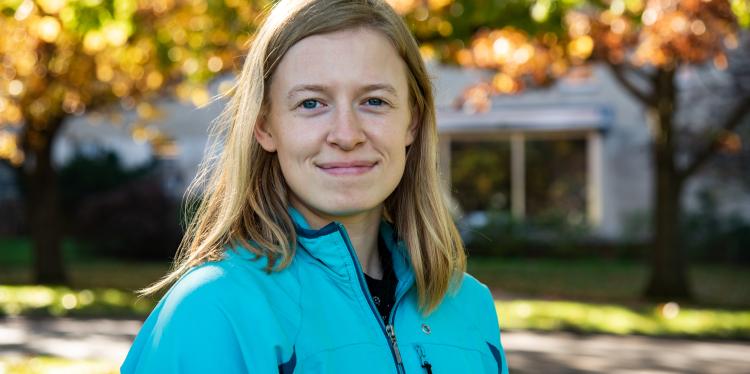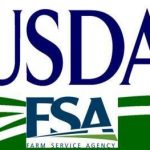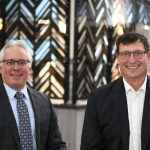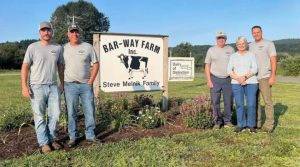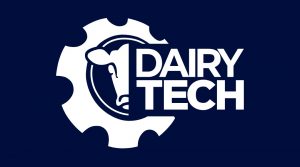
Originally from a small dairy farm in western NY, Megan was inspired to pursue her interests in dairy and an agricultural extension career path. Working and growing up on her family’s farm combined with the internship experience with CCE and the NMSP lent her a direct perspective on the trajectory of sustainability in the dairy industry.
What attracted you to this internship experience?
I first discovered this internship through the CCE website and CALS weekly newsletter. I have an interest in dairy farming that came from growing up and working on my family’s dairy farm in Western NY. I was interested in a career in extension and curious about the research side of the dairy industry, so I thought this internship would be a good fit.
How was the internship structured?
I spent two to three days a week working from campus with the NMSP where we worked on whole-farm environmental assessments and farm biodiversity surveys. The remaining three days I spent with the South Central NY Dairy and Field Crops team, working with my CCE mentor, Janice Degni.
What are farm biodiversity surveys?
Farm biodiversity surveys essentially measure how many different types of habitats farmers have on their lands. The farm biodiversity surveys that we used were from Cool Farm Tool and Field to Market. Both surveys use farm data such as habitat type (e.g. wetlands, forest) and management, and crop type and management to estimate how well a farm supports its biodiversity. Farms would then gain points for using biodiversity-friendly practices such as cover crops, reduced tillage, and riparian buffers.
What specific tasks did you undertake as part of the CCE component of your internship?
I assisted my extension mentor, Janice, with a variety of tasks. Most of our time was spent traveling around South Central NY, meeting with farmers and interviewing them for the NMSP project’s biodiversity surveys. We took soil samples to measure nitrate for in-season nitrogen fertilizer sidedress decisions, measured hemp for an experiment, and checked invasive moth traps. We also got to weed whack a recently planted riparian buffer so the trees wouldn’t get choked out by weeds.
For outreach, we organized an educational outreach program where we taught middle schoolers how dairy farmers feed their cows and created a dairy sustainability poster for the Empire Farm Days.
What were some of your favorite experiences from the internship?
I really enjoyed visiting different farms and talking to farmers about their management practices and the future of dairy. Milk prices have been low for a while and many small farms have been going out of business. It was interesting to see what farmers are doing to adapt and hear how they think these challenges will play out.
The NMSP dairy farm field trips were especially fun because many of the team members had never been to dairies. I like teaching non-dairy people about farm practices.
I also liked the hands-on work with Janice—especially weed whacking the riparian buffers and taking soil samples. I love working outside and it was nice to directly help the farmers. It also showed me the breadth of the kind of things working in extension had to offer.
Did this experience help reaffirm the direction of your future career?
Yes, definitely! I really liked the extension component, especially being able to go out into the field and talk to farmers. I realized that there are a lot of jobs within the dairy industry that I am interested in pursuing and none of them fit neatly into one career.
This internship also showed me that the people you work with are more important than the work you do. Everyone I worked with from the farmers, CCE staff, and my NMSP co-workers were kind, supportive and fun to be around.
Where do you see the future of dairy sustainability given your experience this summer and your background in farming?
Farms that value sustainability, especially those that are participating in the NMSP case study, are on the right track. Sustainability is tough because it includes balancing social, economic and environmental viability. I saw a few farms that process their own milk and sell it locally. It would be nice to see more of that, especially as part of a community-supported ag (CSA) system. I think that could be a sustainable model in some areas.
How do you think we can move towards sustainability in dairy farming?
More on-farm research, such as the kind of studies conducted by the NMSP, to develop and test sustainable solutions would be ideal. I think more research needs to be done on the cow side of the equation, which is why connecting with farmers through outreach and extension is so necessary.
It’s critical to get consumers and farmers to communicate effectively with each other. Communication would help consumers understand the challenges farmers face as they strive to improve farm sustainability, and it would help farmers understand why certain practices are not socially acceptable to consumers.
It’s important for everyone to understand the economic factor to sustainability. Farmers need to balance social and environmental improvements with profit to support themselves, their families, and their communities. Keeping this balance in mind will help ensure sustainability benefits everyone.
Catherine Andreadis ’22 is a student writer for the Cornell CALS Department of Animal Science.
